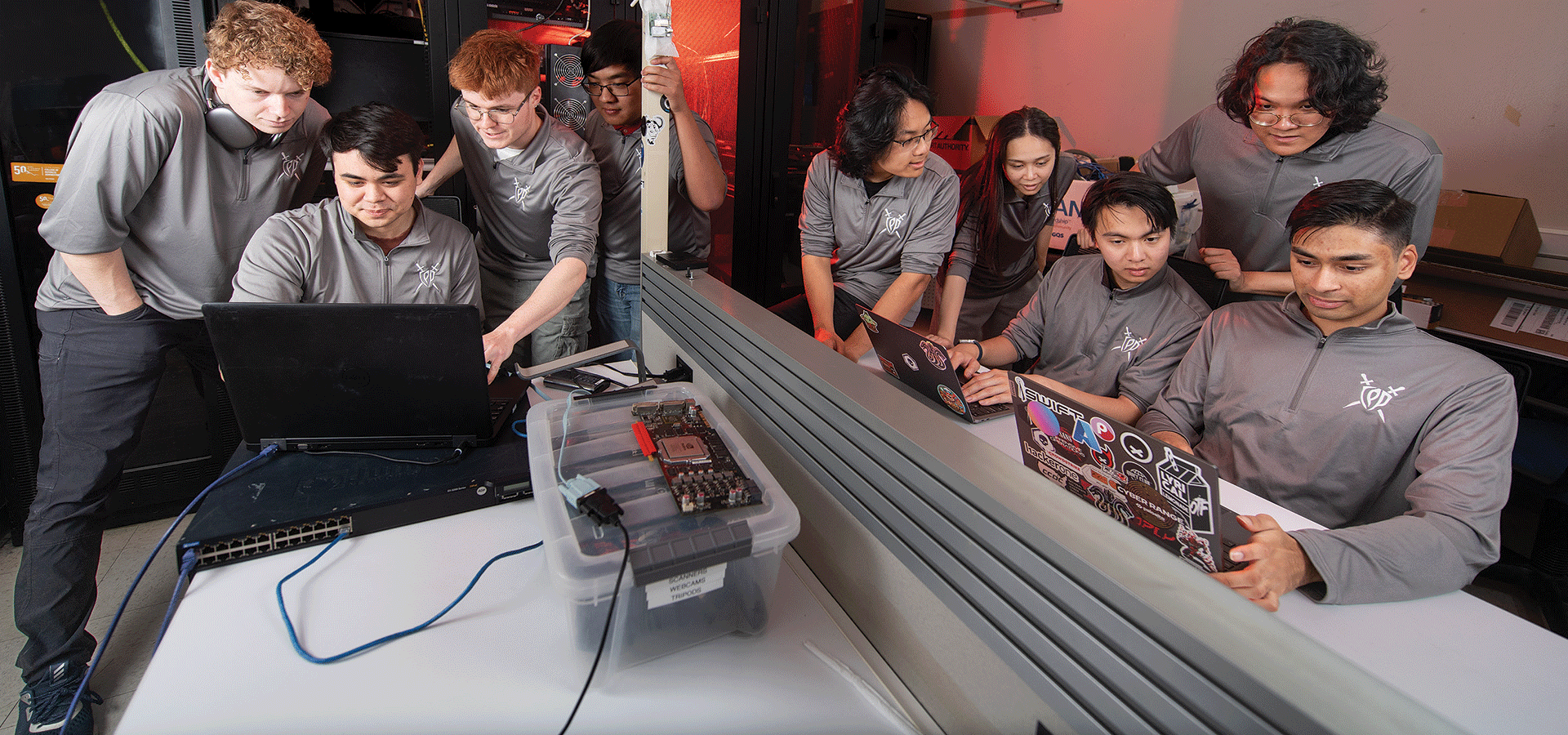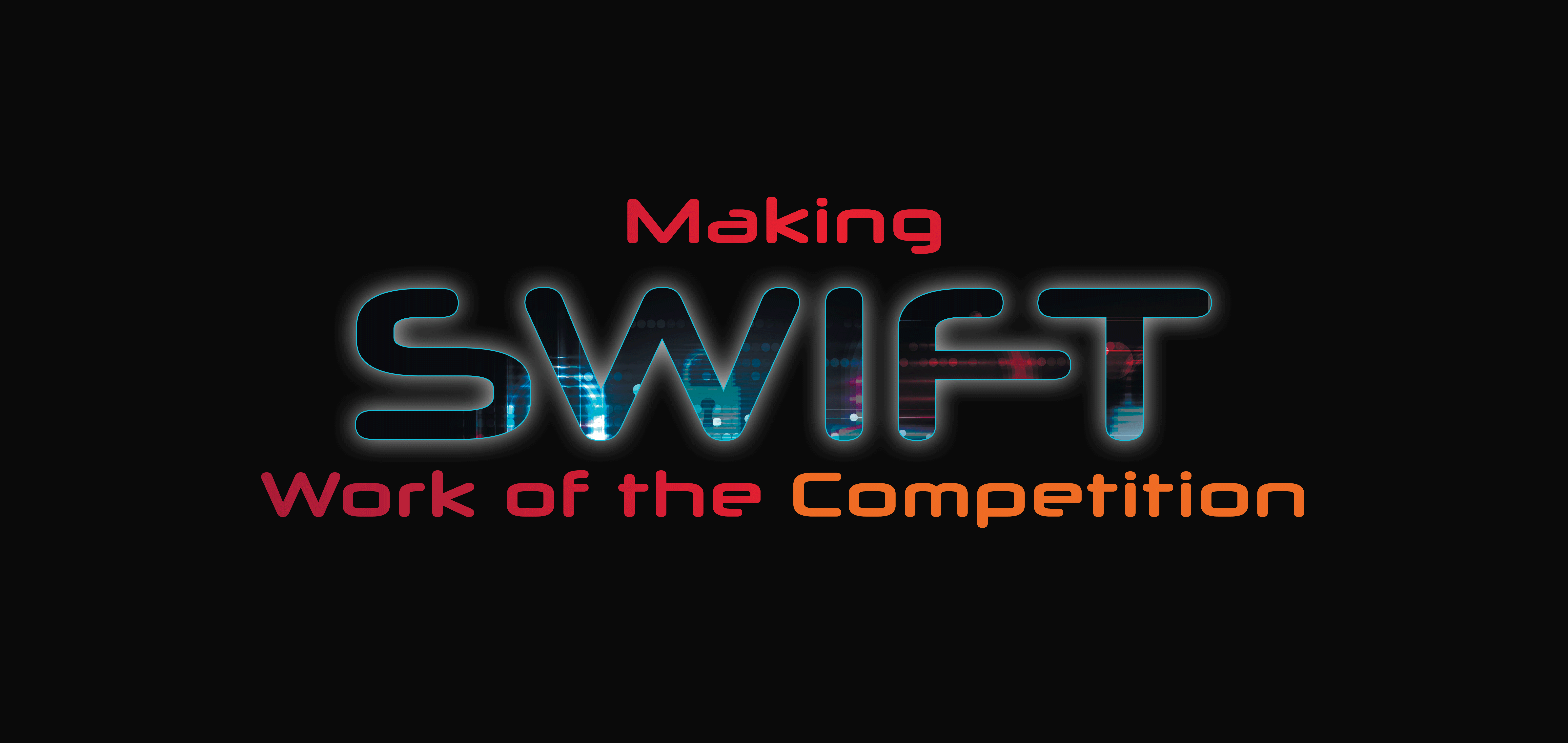Making Swift Work of the Competition
By Michael Landers
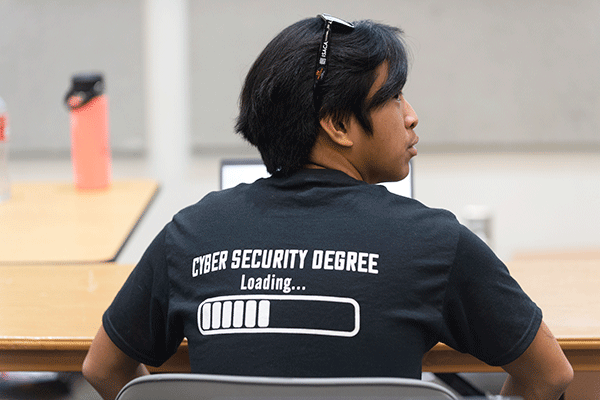 By the end of 2024, the cost of cyberattacks on the global economy could surpass $10.5 trillion, according to Forbes Magazine. Industries such as finance and hospitality have grappled with these crimes, and cyberattacks are also impacting supply chain management, local cities and school districts. Cybercrime Magazine reports that “60 percent of small companies go out of business within six months of falling victim to a data breach or cyberattack,” so it’s no wonder that cybersecurity is one of the top concerns in the global business sector and geopolitical landscape.
By the end of 2024, the cost of cyberattacks on the global economy could surpass $10.5 trillion, according to Forbes Magazine. Industries such as finance and hospitality have grappled with these crimes, and cyberattacks are also impacting supply chain management, local cities and school districts. Cybercrime Magazine reports that “60 percent of small companies go out of business within six months of falling victim to a data breach or cyberattack,” so it’s no wonder that cybersecurity is one of the top concerns in the global business sector and geopolitical landscape.
Through competitions, research opportunities and faculty leadership, Cal Poly Pomona is preparing students to meet the increasing demands of this crucial industry. The university is entering its third decade of designation as a Center of Academic Excellence in Cyber Defense by the National Security Agency, Department of Homeland Security and Central Security Service.
In addition, the university’s programs reach out to high school students, creating a much-needed pipeline to college and industry.
“Cyber is a STEM (Science, Technology, Engineering and Math) field and there are great opportunities for employment in technical, non-technical or mixed environments. Cal Poly Pomona cybersecurity students mentor each other, train every weekend, and are often recruited by major firms and government agencies while they’re still in school. Many have high-paying jobs waiting for them after graduation,” says Ron Pike, director of the California Center for Cyber Risk and professor of computer information systems.
Ahead of the Competition
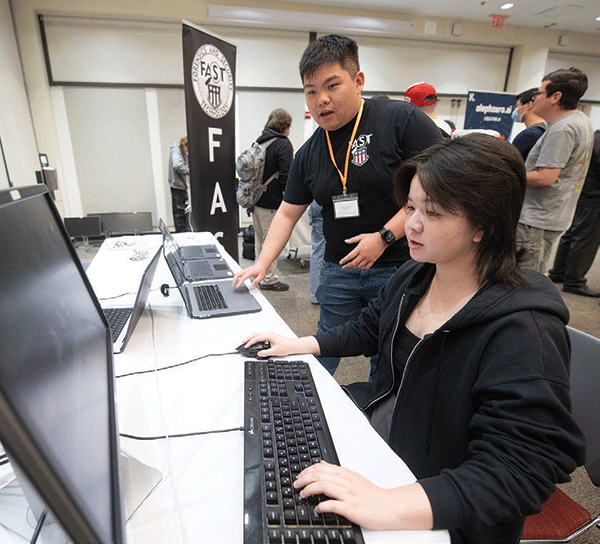 Pike and Curtis Carpenter, adjunct faculty member and interim director of advanced computing, have expanded learning opportunities to include competitions, research, club activities, and networking with corporate partners, alumni, and peers. Students in the College of Business Administration, College of Engineering and College of Science have benefited from the polytechnic experiences.
Pike and Curtis Carpenter, adjunct faculty member and interim director of advanced computing, have expanded learning opportunities to include competitions, research, club activities, and networking with corporate partners, alumni, and peers. Students in the College of Business Administration, College of Engineering and College of Science have benefited from the polytechnic experiences.
Programs like these continue to grow, thanks in part to a generous $12.5 million donation from Distinguished Alumni David Singelyn (’84, computer information systems and accounting) and Ruth Singelyn (’84, computer information systems) to the Singelyn Graduate School of Business. In addition, Kathy Tully, also a Distinguished Alumna (’80, MBA) and one of Barron’s Top 100 Women Financial Advisors, sponsored students’ travel to the competitions.
At national and international competitions, student teams implement the skills they learn in the classroom. Depending on the competition challenge, they may act as the aggressor, exploiting system weaknesses and mining data from organizations. Other times, they wear the white hats and try to identify and fend off cyberattacks. One competition challenge saw the Cal Poly Pomona team protecting sensitive customer and vendor information in the hacking of a fictitious bank merger, while another challenge saw the teams identifying system vulnerabilities and technical improvements to the executives of a fictitious hotel company.
CPP won first place at the 2023 Collegiate Penetration Testing Competition and second at the 2023 National Collegiate Cyber Defense Competition (CCDC).
“The hands-on experience you get from a competition like CCDC is not something you get in the classroom,” says Karina Rivera, a CIS senior. “We learn to work under pressure, solve complex problems, and collaborate with others in a stressful time-constrained environment.”
From Competitions to Community
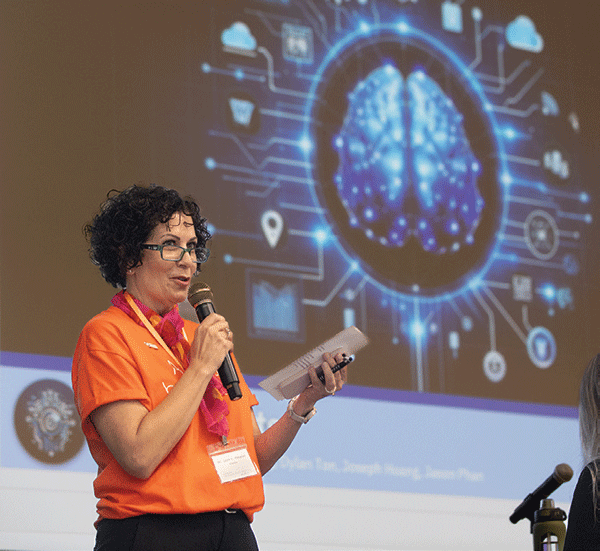 Part of the university’s success in cyber competitions is rooted in a supportive community within campus clubs and outreach activities.
Part of the university’s success in cyber competitions is rooted in a supportive community within campus clubs and outreach activities.
“I didn’t know I wanted to pursue cybersecurity until my second year of college. I was looking for clubs to be involved in on campus, and I came across SWIFT, one of the largest cybersecurity clubs at CPP,” Rivera says. “As I became more involved, my passion for it only grew more, and I knew I wanted to pursue this as my career.”
Rivera is now a cyber defense analyst at Avanade and she is one of the many trainers to CPP and high school students through SWIFT (Students with an Interest in the Future of Technology), a premier cyber club on campus that develops and trains cyber teams for regional, national and global competitions.
Many SWIFT members also volunteer for CPP’s CyberPatriot program, which aims to create a clear pathway for middle and high school students to learn about cybersecurity, participate in competitions, go to college, graduate, and immediately find jobs in industry and government. Workshops and summer bootcamps at schools in the San Gabriel Valley and Inland Empire encourage kids to explore cybersecurity and related career paths. This effort has proven successful in drawing participation from students of all backgrounds and has spurred growing diversity among the cyber teams at Cal Poly Pomona.
CyberPatriot is a national program that alumna Diane Miller (’81, information systems) led when she was the director of Global Cyber Education and Workforce Development at Northrop Grumman. Miller has been actively engaged with Cal Poly Pomona’s cybersecurity program for decades, supporting creation of the student-run cyber operations center, speaking to students about cyber careers, launching the collaboration with CyberPatriot, and representing Cal Poly Pomona cyber as the Executive-in- Residence for Cybersecurity.
“It’s an honor to collaborate with the brilliant cyber students at Cal Poly Pomona, especially as I’ve seen them drawn into the field through CyberPatriot.” Miller says.
That’s certainly the case for recent graduate Gabriel Fok, who started his cyber journey in high school and now works as an information systems security engineer at Boeing.
“I first learned about cybersecurity in high school through CyberPatriot,” says Fok (’23, computer science). “While the technical aspect brought me, I’ve stayed for the community. Ever since my second year of high school, I’ve been teaching others who stood where I once stood, and now I am coming up on my seventh year of mentoring in cybersecurity — and I still don‘t see any sign of stopping.”
